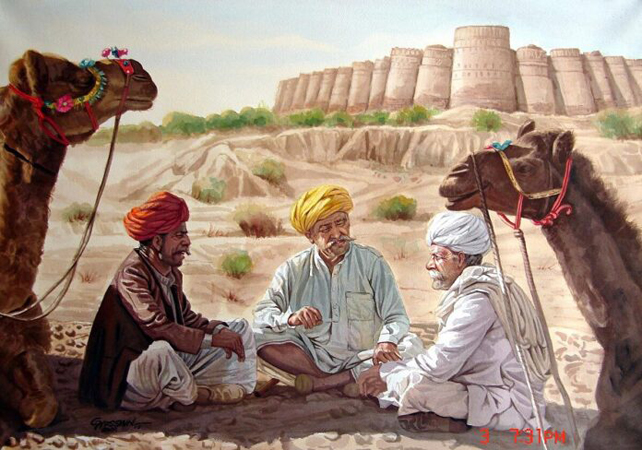Seraiki Folklore — Telling tales of centuries


It is not confined to myths and legends but includes proverbs, rituals, songs and even folk remedies that shape the identity of people and Seraiki folklore is less to none in popularity in South Punjab and beyond.
Folklore plays a vital role in preserving cultural identity and social values and strengthens communal bonds, educates younger generations and serves as a historical record of past events and traditions.
“In societies with strong oral traditions, folklore acts as an unwritten history, carrying forward the knowledge and experiences of ancestors,” remarked Dr Khalid Iqbal, ex-Station Director Radio Pakistan.
“Folklore also serves as an inspiration for modern literature, music and even governance by reflecting the ethos of a region, said Dr Khalid Iqbal, also a writer of famous book “Seraiki Language and Literature.” Various forms of folklore found in Seraiki literature include Wai, Kafi, Dohay, folktales, proverbs, idioms, lok geet and folk remedies.
“Wai is a form of devotional and mystical poetry often associated with Sufi saints. It carries themes of divine love, human suffering and spiritual enlightenment,” Dr Khalid said. “Kafi is also a well-known poetic form in Seraiki and Sindhi literature that expresses deep philosophical thoughts and emotions. “Works of Khawaja Ghulam Farid are prime examples of Seraiki Kafi.”
Commenting on Dohay, he stated these are couplets rich in wisdom and everyday philosophy, offering moral lessons and reflections on life. Besides this, Folk tales in Seraiki literature revolve around legendary figures, heroic deeds and morality. “Stories like Sassi-Punnu, Heer-Ranjha, etc are widely narrated in South Punjab. These tales reflect themes of love, sacrifice and destiny.”
Similarly, he said, proverbs are an integral part of Seraiki folklore, encapsulating wisdom in short and impactful phrases. For example “Jihday hath aayan, unhay hathi bhal aay” (One who possesses something also bears its responsibility). “These expressions often contain centuries-old experiences and moral lessons,” Dr Khalid said, as he also mentioned to traditional Seraiki songs, including Mahiya, Jhummar and Sufi-Kalam that are widely sung at cultural gatherings, weddings and sufi shrines.
Jhummar is a rhythmic folk dance often performed during celebrations while festivals like “Mela Urs Khawaja Fareed, Mela Channan Peer”, Urs Sakhi Sarwar and some others are also deeply rooted in folklores.
According to Dr Khalid Iqbal, the Seraiki folklore stands as a vibrant testament to region’s rich literary and cultural heritage.
Leave a Comment